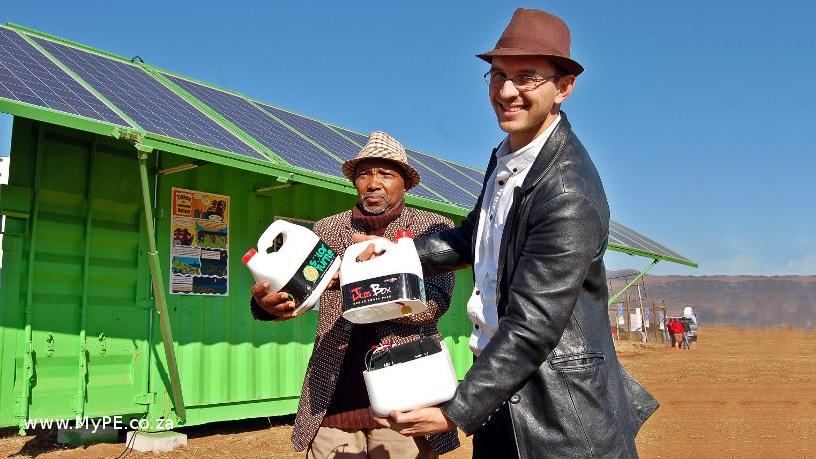
After recently winning the Nation Builder Social Innovation Challenge, Cape Town based renewable energy start-up Solar Turtle wants to empower women entrepreneurs in rural communities by creating a viable micro-franchising model based on the scalability of renewable energy.
Solar Turtle is the brainchild of CEO Lungelwa Tyali, CTO James van der Walt, CSO Charlene Barnes and sales director Ursula Juluis.
Established in 2016, the start-up is a social enterprise that designs and manufactures solar-powered energy hubs or kiosks that can be used by entrepreneurs to provide a source of energy to community members in rural and off-grid areas.
The kiosks, which are distributed to various parts of SA, have solar-powered photovoltaic (PV) panels which open during the day to collect sunlight, and close at night, locking securely into the container.
The company describes the kiosk, or Solar Turtle, as follows: "The SolarTurtle feeds just like a turtle. In the morning, when it is safe, the panels unfold from their secure location to feed from the rays of the sun. In the evening, when it is unsafe, the panels fold away into the hard shell of the container."
Inside the kiosk are solar-powered micro stations which are fitted with easy-to-use renewable energy batteries of different sizes. These batteries serve as an energy well from which locals access energy to power their phones, lights and any other devices. The batteries can also be bought and taken home to provide instant electrification for home appliances. Once the batteries run flat they can be returned to the kiosk to be recharged for a minimal fee.
Van der Walt explains: "Our vision is to change the way people do business in remote parts of Africa and beyond. We offer a universal solution to business development in off-grid locations: from the smallest energy kiosk, to the largest mining solar installation. We can design and manage it all.
"We want to train Turtlepreneurs [the people who run the Solar Turtles] to run a successful energy business and ensure that the community stays brightly lit. This is done via an innovative pay-as-you-go model, where each entrepreneur pays for rental of the kiosk, in addition to any electricity they use, which they mark up and sell (R/kWh)."
The kiosk contains a 4 kW solar PV system that has the capacity to serve 300 to 400 households with basic electricity requirements. The kiosk also contains a range of energy-efficient appliances, such as home solar system kits and solar globes, which are for sale.
After recently winning R75 000 at the Nation Builder Social Innovation Challenge, an innovation initiative established by the Stellenbosch University's Launch Lab, the start-up says it is in the process of launching the first automated Turtle which will be used to empower community members.
The turtle will be housed at a community centre in Delphi, Western Cape, and used to provide an all-solar power source to the various in-house projects: with a special focus on initiatives run by women such as the bakery, sewing and others.
"Through our non-profit organisation, The SolarTurtle Foundation, we want to use the scalability of renewable energy to start micro-energy franchise businesses focused on empowering women in rural communities to become entrepreneurs.
"One of the challenges facing local communities is that rural electricity is often disturbed by crime, where power and solar cables are always stolen and power supply is often disturbed.
"So we want to provide communities with a holistic power alternative, while creating revenue streams for female entrepreneurs by building a sustainable community business that has low barriers to entry."
Last week, Eskom and KfW, the German development bank, on behalf of the German government, signed a $100 million (about R1.38 billion) loan facility for renewable projects.
The loan will support further investments in the transmission network in the Northern Cape to facilitate the grid integration of renewable energy independent power producer projects under the recently-signed power purchase agreements.
In April, energy minister Jeff Radebe finally signed the outstanding 27 renewable energy projects with independent power producers. These deals are valued at about R58 billion.
The signing of these deals had been delayed for some years, much to the dismay of the renewable energy industry.
The loan comes as Eskom is struggling financially, with the company in a dispute with labour unions over salary increases. Ratings agencies like Moody's have downgraded Eskom's credit rating, citing lack of clarity regarding the South African power utility's plans to stabilise its finances.
Share